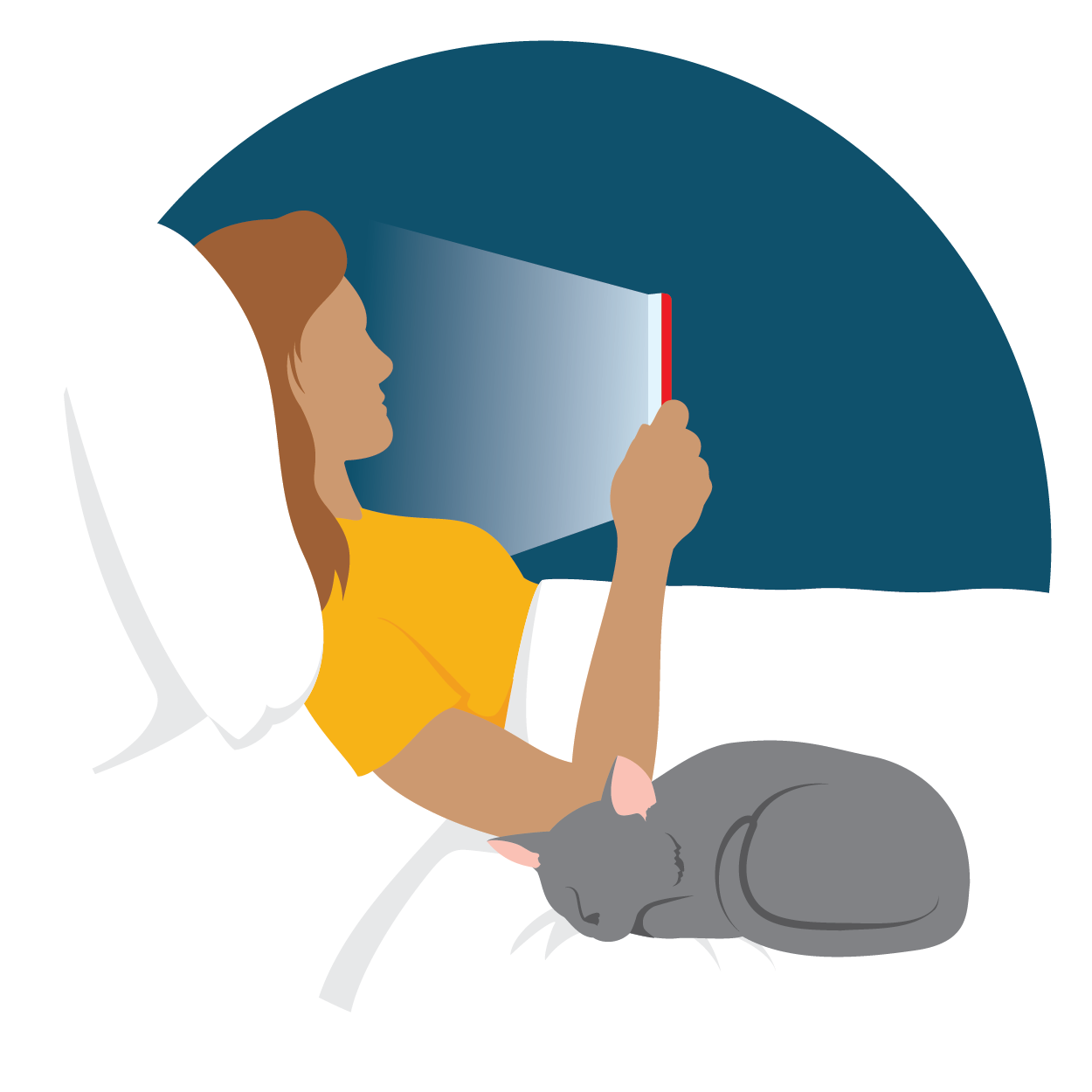[ad_1]
GRaham Dugoni received uninterested in seeing smartphones in every single place whereas residing in San Francisco in 2014. So he determined to create device-free areas for folks like him: artists, educators, and anybody else who craved a digital break.
The result’s Yondr, a bodily method to unwind at live shows, faculties, courtrooms, and personal occasions. For instance, if a touring musician chooses to make use of it, ticket holders will likely be knowledgeable prematurely that after they arrive on the venue they’ll put their telephone in a bag that may lock when closed. Patrons preserve this bag with them however can solely entry their telephone when going to specifically designated areas away from the group. Once they go away, the baggage are unlocked.
“Lots of what we hear is that the present is simply higher,” says Dugoni. Some folks report that after initially worrying about shedding entry to their telephone – a limb of honor – the expertise in the end proved liberating. “Folks exit and say it is unimaginable to not see a single smartphone. There’s extra vitality and it accentuates every thing.”
The existence of YONDR sheds gentle on an issue – that folks have virtually merged with their telephones – and the necessity for options.
Analysis hyperlinks extreme smartphone use to a wide range of bodily and psychological well being issues, together with fatigue and elevated ranges of melancholy and nervousness. Our telephones distract our consideration, tempt us to drive and stroll dangerously, and expose us to on-line callousness and bullying, says Adam Alter, professor of promoting at NYU Stern Faculty of Enterprise and creator of Irresistible: The Rise of Dependancy Know-how and the Enterprise of Getting Us Addicted.
There are additionally broader societal issues. “I discover [disconnecting] is necessary for everybody,” says Alter. “It is necessary for youths to develop stronger social expertise and relationships after they’re not behind screens. It is necessary for adults, who usually tend to join with others after they spend time offline quite than glued to their screens. And it is necessary for communities which might be impoverished when their public areas are stuffed with a whole bunch or hundreds of people that sit in public however spend time alone behind screens.”
Here is what you’ll want to know in regards to the indicators of smartphone habit, its well being implications, and the best methods to modify off.

Illustration by Brown Chook Design for TIME
Signs of telephone habit
Being glued to our telephones 24/7 just isn’t but acknowledged as an habit within the Diagnostic and Statistical Guide of Psychological Issues (DSM-5), though the time period is used colloquially. Many specialists within the discipline use the time period “problematic smartphone use” as a substitute.
“By problematic, we imply that your smartphone use is affecting totally different areas of your life,” says Jay Olson, a postdoctoral researcher in psychology at McGill College who researched the subject. “It may have an effect on your focus. It might be that utilizing your telephone makes you’re feeling much less social. It might be that you just sleep much less nicely since you keep up late and scroll by way of your telephone.”
Olson’s analysis relies on the Smartphone Dependancy Scale, which was developed in South Korea a couple of decade in the past and is now used all over the world. Answering “sure” to questions like these would possibly point out an issue:
- Do you miss scheduled work resulting from smartphone use?
- Are you impatient and frightened when you do not have your telephone in your fingers?
- Are you continually checking your telephone so you do not miss what’s taking place on social apps like Twitter or Instagram?
- Do folks let you know that you just use your smartphone an excessive amount of?
- Are you shedding monitor of how lengthy you’ve got been utilizing the machine?
Problematic smartphone use in all probability impacts most adults within the US, says Dr. Anna Lembke, Professor of Psychiatry and Behavioral Sciences at Stanford College and creator of Dopamine nation: discovering stability within the age of indulgence. “I really feel prefer it impacts nearly everybody who presently has a tool. The digital content material is simply so engaging and now we have such easy accessibility.”

Illustration by Brown Chook Design for TIME
How telephone habit impacts bodily and psychological well being
Telephones are usually not good or unhealthy per se, says Dr. Jason Nagata, assistant professor of pediatrics on the College of California, San Francisco. Our units present many necessary features, reminiscent of communication and connection, that may profit our well being. However an lack of ability to detach out of your display screen may have dangerous results.
One of many greatest potential results has to do with sleep. Researchers have discovered that problematic smartphone use is related to decreased general sleep time and decreased sleep high quality. “Blue gentle can suppress melatonin, which might in any other case show you how to go to sleep,” says Nagata. “And notifications, ringtones or noise all through the evening can undoubtedly disrupt your sleep.”
Plus, smartphone habit can derail your time and a spotlight so you’ll be able to spend much less on more healthy pursuits. In 2021, adults all over the world spent a mean of 4.eight hours a day on their telephones, based on app monitoring agency App Annie — a document excessive. “When folks spend a variety of time on their telephones, it takes time away from different necessary actions like exercising and socializing,” says Nagata. “There may be not a lot free time for bodily exercise or different issues.”
Analysis exhibits that smartphone use may be notably dangerous for teenagers and kids. A 2021 research co-authored by Nagata discovered that display screen time in 9- and 10-year-olds was linked to binge consuming issues. “Teenagers can binge eat even after they’re not hungry after they’re distracted by telephones and screens, resulting in weight acquire,” he says. One other 2021 research discovered that telephone use and texting led to greater BMI and weight acquire in teenagers, and a 2022 evaluation linked overuse of a telephone to disruptive behavioral issues, reminiscent of melancholy. B. oppositional defiant dysfunction, in youngsters.
There are myriad psychological well being implications too. In keeping with a evaluate printed in 2022, extreme smartphone use – which has intensified in the course of the pandemic – can exacerbate the severity of hysteria and result in psychiatric signs, stress and melancholy. One other current research concluded that problematic smartphone use correlates with suicidal ideas and even suicide makes an attempt.
“The query is at all times: rooster or egg?” says Lembke. “Have been they depressed and anxious and in consequence spending extra time on their units, or did time on-line make them depressed and anxious? I might say it is in all probability a little bit of each.”

Illustration by Brown Chook Design for TIME
Find out how to disconnect your telephone
No must sacrifice your machine. Small modifications could make an enormous distinction. Specialists advocate these research-backed methods:
Collect your notifications
Flip off the sounds and banners that flash throughout your display screen letting you already know you wish to watch a brand new Fb message, e-mail, or TikTok video. As an alternative, stack them in order that all of them come without delay, both hourly or much less regularly. Analysis exhibits that this could scale back stress. “It makes it much less seemingly that you will choose up your telephone after which get caught on this maelstrom,” Olson says, mindlessly scrolling with out realizing that half an hour has handed.
Make your telephone much less accessible
The most effective methods to disconnect out of your telephone is to bodily stroll away from it. “For instance you’ve gotten your small workstation at house – attempt to go away your telephone behind on the shelf,” advises Olson. A lot of our telephone use is senseless, so “placing up these little obstacles, like holding it face down behind you” may be efficient. Retaining your telephone in a distinct room whilst you sleep is one other notably useful technique, he provides.
Cover social media apps
Drag all of your social and e-mail apps right into a folder that does not seem on your property display screen, so it takes some work to open them, Olson suggests. Higher but, delete them out of your telephone and solely entry them by way of your laptop computer, which might drastically lower down on the time you spend on them.
Make it tougher to unlock your telephone
As an alternative of utilizing useful options like Face ID, you employ a passcode that it’s important to enter manually. Researchers have discovered that such a delay earlier than accessing your telephone can scale back utilization.
Make a listing
Earlier than you choose up your telephone, make a listing of precisely what you wish to accomplish with it: possibly checking your e-mail, discovering a recipe for dinner, and texting just a few pals. After you choose it up, do not do something that is not in your checklist, Lembke suggests.
Set your telephone display screen to grayscale
Manipulating your settings to suck all the colour out of your show can truly assist scale back display screen time and nervousness. “That makes the telephone rather less enticing,” says Olson. “We’re form of conditioned to clicking on these notifications, and after they’re black and white, we discover them rather less.”
Go for outdated expertise
Olson has at all times been a sluggish adopter of expertise; When smartphones first grew to become widespread within the early 2010s, he determined to carry out and see what the affect was earlier than getting one. He is been utilizing the iPhone SE, an older mannequin of the machine launched in 2016, for about 5 years. “I attempt to purchase the smallest telephone I can after which preserve it for so long as potential,” he says. “It’s kind of tougher to kind and would not have the very best apps and updates – as a result of that is not precisely the life I would like.”
Extra must-read tales from TIME
[ad_2]







































Discussion about this post